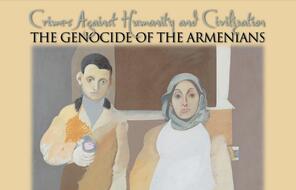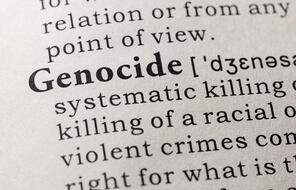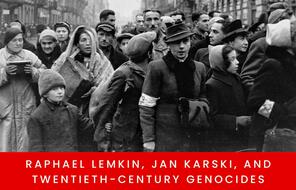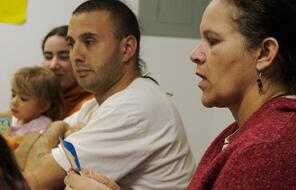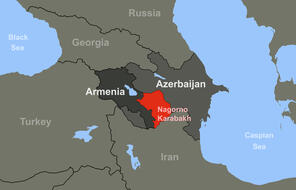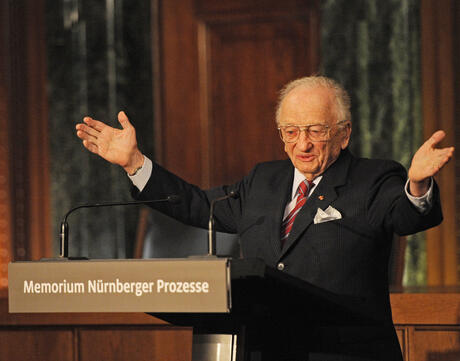
A Life Dedicated to Ending Genocide
On Friday, April 7 Benjamin Ferencz died at the age of 103. He was the definition of an upstander, following his convictions and using his voice to inspire others toward acts of justice and protection under the law. The impactful lessons and profound stories that he shared with Facing History over the years are a critical part of our seminal curriculum: Holocaust and Human Behavior.
Even within an extraordinarily long life, Mr. Ferencz dedicated a notable amount of time to learning about and calling attention to crimes against humanity. In 1940 he began to pursue a degree in criminal law and juvenile justice from Harvard Law School. But his collegiate research for a Harvard professor who was writing a book on war crimes changed his path and passion for the next 83 years.
Following his military service during World War II, Ferencz’s background in war crimes, his fluency in multiple languages, and his law degree made him the obvious choice to run the legal case against the Einsatzgruppen Nazi defendants. At the time the field of human rights was just emerging, so despite being just 27 years old and never having litigated in a courtroom, Ferencz led 50 researchers across Germany as they searched for proof that the Nazis had organized and carried out genocide and then took that evidence to the Nuremberg trials as chief prosecutor.
The horrors that Ferencz was witness to in the Army and during his post-war investigations into the Holocaust fully convinced him that “Law. Not war.” was the only solution to prevent such utterly cruel fates as befell victims of the Nazis.
After the Nurermberg trials, Mr. Ferencz helped to secure reparations for displaced Jews and continued to practice law, but the idea—the moral requirement—to end all war was his driving force. Around the time of the Vietnam War, promoting world peace became his full time job. This focus on peace included decades of tireless advocacy for the creation of a permanent international criminal court.
Finally in the summer of 1998 representatives from more than 160 countries gathered in Rome to discuss and vote on the design and procedural process of an international court.
An excerpt from the Facing History resource The International Criminal Court states: “Because the representatives came from diverse cultures with differing views on justice, reaching agreement about the structure of an international criminal court required careful negotiation and compromise. Despite these challenges, the document drafted at this conference, the Rome Statute, was eventually approved, establishing the International Criminal Court.”
As of 2015, 123 countries had officially recognized the authority of the court.
In 2002 the International Criminal Court (ICC) brought forth its first cases. Ferencz was a vital player in campaigning for the ICC and it exists in large part due to the precedent he helped set during the Nuremberg trials. He was also part of a failed effort to convince the United States to become a member nation of the ICC. Despite the US refusing to ratify the Rome Statute, many US legal experts have joined the ranks of the ICC.
Benjamin Ferencz’s dedication to stopping mass atrocities was not just a career choice but a deep personal passion that led him to author nine books and offer his time and wisdom to organizations that shared his vision. His contributions to Facing History’s scholarship will remain a vital part of our teaching materials and his gifts to this world will live on through generations of changemakers who choose peace. You can read more about his amazing life story in this remembrance from The New York Times.

